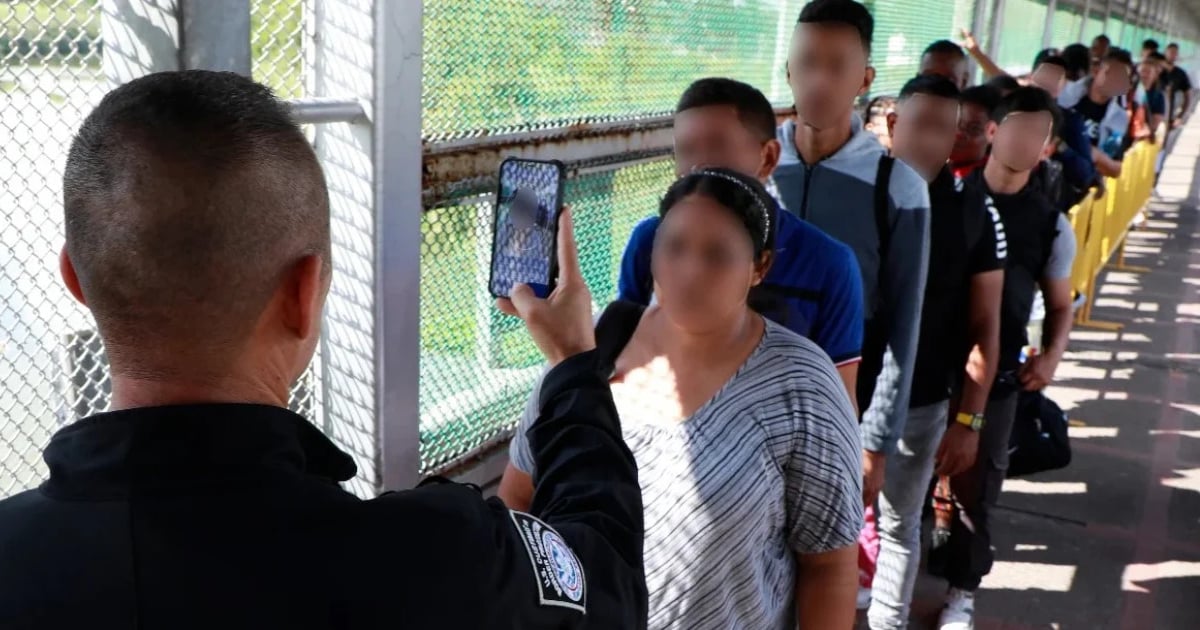
Related videos:
The U.S. Customs and Border Protection (CBP) confirmed that irregular crossings of migrants, including Cubans, have significantly decreased in recent months.
In an official statement, CBP reported a reduction of more than 60% in encounters at ports of entry from May to November of this year, reaching the lowest levels since July 2020.
This trend is largely attributed to the immigration policies and international agreements implemented by the Joe Biden administration.
In November, 8,362 individuals from Cuba were found at the border. This figure includes both attempts at illegal entry by sea and land, representing an increase of nearly 100 people compared to the previous month.
From 2022 to the present, the highest number of Cubans detected at the border occurred in December of that same year, with over 44,000 migrants reported.
In the policies influencing the decline of illegal crossings at the country's southern border, the presidential proclamation of June 2024 to temporarily suspend the entry of migrants stands out; as well as the increase in expedited deportations; and the reduction of individuals released while awaiting their hearings in immigration courts.
During the analyzed period, the Department of Homeland Security (DHS) doubled the percentage of migrants processed under the Expedited Removal procedure, which strengthened the consequences for those crossing irregularly.
This decrease in crossings occurs within a political context marked by Donald Trump's announcement that upon resuming the presidency in January 2025, he intends to implement mass deportations as part of his immigration strategy.
Trump's priority is to tighten policies for those attempting to enter the United States illegally. His controversial strategy is creating uncertainty among migrants, particularly among Cubans, even though they still have opportunities to regularize their status under the Cuban Adjustment Act.
The CBP statement also emphasizes the cooperative efforts with Mexico and Central American countries as being vital to reducing border crossings.
In November, the Border Patrol recorded 46,610 encounters between ports of entry, an 18% decrease compared to October and an astounding 76% drop from November 2022.
Additionally, the crossings of Cuban nationals and individuals from other countries included in the parole processes, such as Haiti, Nicaragua, and Venezuela, have decreased by 98% since these policies were implemented. This reflects a significant change in migration dynamics toward the southern border.
Amid these stricter measures, the message from the United States is clear: entering irregularly is becoming increasingly difficult, especially with the imminent return of a Republican administration with harsher policies.
Frequently Asked Questions About the Migration of Cubans to the United States
Why have the border crossings of Cuban migrants to the United States decreased?
The crossings at the border by Cuban migrants have decreased due to the immigration policies implemented by the Joe Biden administration. These policies include an increase in expedited deportations and a reduction in the number of migrants released while awaiting hearings in immigration courts. Additionally, collaboration with Mexico and other Central American countries has been crucial for this decline.
What is the impact of humanitarian parole on Cuban migration?
The humanitarian parole has allowed the legal entry of more than 110,000 Cubans into the United States since its implementation in January 2023. This program has significantly contributed to reducing irregular crossings, decreasing illegal entry attempts by Cubans and other nationalities included in the program by 98%.
What changes are anticipated in U.S. immigration policy with the arrival of Donald Trump?
With Donald Trump's entry into office in January 2025, significant changes in U.S. immigration policy are anticipated. Trump has announced his intention to eliminate humanitarian parole and tighten immigration policies, which could impact the legal migration opportunities for Cubans and individuals from other nationalities.
What alternatives do Cubans in the U.S. have in light of the potential end of humanitarian parole?
Cubans in the United States can consider regularizing their status through the Cuban Adjustment Act. This law allows them to apply for permanent residency after a year of entering the country on parole. This option provides Cubans with a significant legal advantage compared to other nationalities.
Filed under: